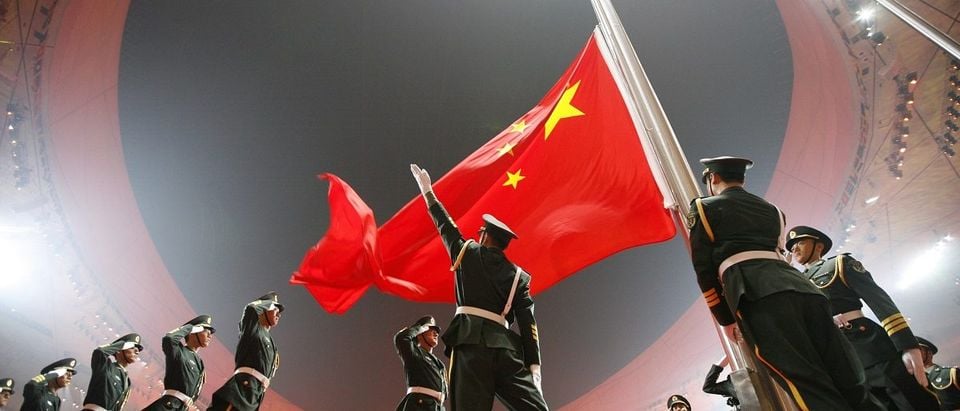Satellite imagery suggests there may be more to China’s first overseas military base than meets the eye, according to a geo-intelligence firm.
China began building a military base in Djibouti on the Horn of Africa last year, and the People’s Liberation Army dispatched troops to the base earlier this month. China asserts the base is for peacekeeping and humanitarian operations, arguing that the Chinese military will use the base to “make new and greater contributions” to regional peace and stability, but the U.S., which has its own base nearby, has concerns about China’s strategic intentions.
“We’ve never had a base of, let’s just say a peer competitor, as close as this one happens to be,” Marine Corps General Thomas Waldhauser, commander of AFRICOM, told Breaking Defense in March. “There are some very significant operational security concerns” with regard to China’s overseas military base development.
“This initiative, along with regular naval vessel visits to foreign ports, both reflects and amplifies China’s growing influence, extending the reach of its armed forces,” the Department of Defense noted in the this year’s China Military Power Report.
Satellite images from Stratfor Worldview and Allsource Analysis show that the Djibouti military base is much bigger and more secure than previously thought. It is a heavily fortified facility with three layers of security and 250,000 square feet of underground space.
“This type of construction is in line with known Chinese practices in hardening their military bases, Stratfor explained in an accompanying analysis. “The underground structures allow for unobserved activity, as well as offer protection to vehicles or facilities critical to the Chinese mission in Djibouti.” China has similarly hardened its strategic military outposts in the South China Sea, which provide outlets for increased militarization in the region.
Stratfor also detected hangars for helicopters, but not fixed-wing aircraft.
The base in Djibouti is expected to serve as an essential tool for the development of a “blue water navy.”
“One of the big hall marks of a superpower is having blue-water capacity, and China is in the awkward position where it sees itself as a superpower, other countries perceive it as a superpower, but it doesn’t actually have the full capacity of a superpower as yet,” Yvonne Chiu, an assistant professor at the Department of Politics at the University of Hong Kong, told CNN recently. China is stepping up its capabilities by producing new naval vessels at a rapid rate and moving its forces farther from its shores.
Several Chinese naval units are presently training with Russian forces in the Baltic Sea.
Send tips to ryan@
All content created by the Daily Caller News Foundation, an independent and nonpartisan newswire service, is available without charge to any legitimate news publisher that can provide a large audience. All republished articles must include our logo, our reporter’s byline and their DCNF affiliation. For any questions about our guidelines or partnering with us, please contact licensing@dailycallernewsfoundation.org.


